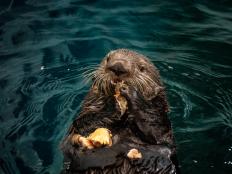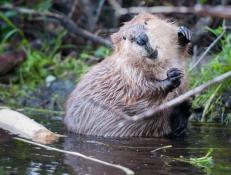Articles
Showing 106 - 120 of 2,630 results
Curiosity Daily Podcast: Mushrooming Minds, Super Plants, Plz Call Your Friends
Magic mushrooms are giving researchers hope in treating conditions like anxiety and depression, a new study may have found the key to increasing photosynthesis efficiency in plants, and research shows that we love being reached out to by old friends!
How to Celebrate the Autumn Equinox
From seasonal foods to candle-lit evenings, here are some simple ways to celebrate the autumn equinox.
Galápagos Giant Tortoises Are Mysteriously Turning Up Dead in Ecuador
Despite the tough protections, there has been a spate of tortoises killed in recent months, and officials fear the animals have been slaughtered for their meat.
Robotrucks to Deliver New Era of Driverless Technology
Clear winners are hard to pick in the race to develop self-driving vehicles, but autonomous trucks have built a convincing lead. Robotrucks have completed thousands of automated journeys and the world appears to be braced for a new era of driverless delivery.
An Otterly Adorable Awareness Week
Our southern sea otters at Georgia Aquarium are furry, energetic, and (of course) adorable. They spend most of their days swimming, playing, and eating, but most importantly they inspire our guests to care for our world’s waters.
Shark Week: The Podcast – Christine de Silva on the Technology Helping Us Understand Deep Sea Sharks
Luke Tipple is joined by Christine de Silva, marine scientist, shark expert, and co-founder of Juice Robotics to discuss deep-sea sharks and the technology helping us understand them.
Curiosity Daily: Fry Flying, Gas Giants at Home, Entangled Atoms
Today we are discussing new sustainable fuels for airplanes, creating other worldly heat at home, and a new record for quantum entanglement.
Curiosity Daily: Octopus Culture, Schizophrenia Origins, Killing Cancer
Learn about octopi forming communities, clues to the origins of schizophrenia, and a new compound giving researchers hope for fighting tough to treat cancers.
Got You! Astronomers Find an Especially Sneaky Black Hole
Black holes are tricky creatures. Since ancient times the practice of astronomy has been to point our eyes and instruments at all the glowing things in the skies above us. But black holes are defined by the fact that nothing, not even light, can escape their gravitational clutches. So how you do see something that is completely, totally black?
Shark Week: The Podcast – Madison Stewart Discusses Helping Shark Fishermen Transition into Tourism
Luke Tipple is joined by Madison Stewart aka “Shark Girl”, filmmaker, shark conservationist and founder of Project Hiu.
Curiosity Daily: Glass Rain Dinosaur Pain, Snarge Science, Human Skin Cyborg
A new archeological discovery might be from the day of the big asteroid strike that took down the dinosaurs, bird goo is helping us understand airplane accidents, and find out about the most human-like robot finger you’ve ever seen.
How Relocated Beavers Fight Climate Change
Relocated beavers cooled stream temperatures and restored the water levels only a year after their arrival.
Building Atlantropa: One Man’s Plan To Drain the Mediterranean Sea
Atlantropa may be the most bizarre and ambitious environmental project you have never heard of.
Supertrees That Suck Up More Carbon Could Be Forest Climate Fix
Forestation and tree growth are perhaps the most powerful tool for reducing levels of the greenhouse gas carbon dioxide (CO2) in Earth’s atmosphere and tackling climate change. Now genetically modified (GM) ‘supertrees’ that grow faster and rapidly take up CO2 could be used to address the climate crisis.
Curiosity Daily Podcast: Big Brain Bestfriends, Mars Exploration Fleet, Brain Unpain
Discover how our brains physically reflect how social we are, a new proposal for Mars exploration vehicles, and patterns in our brain that reveal how we process pain!






















